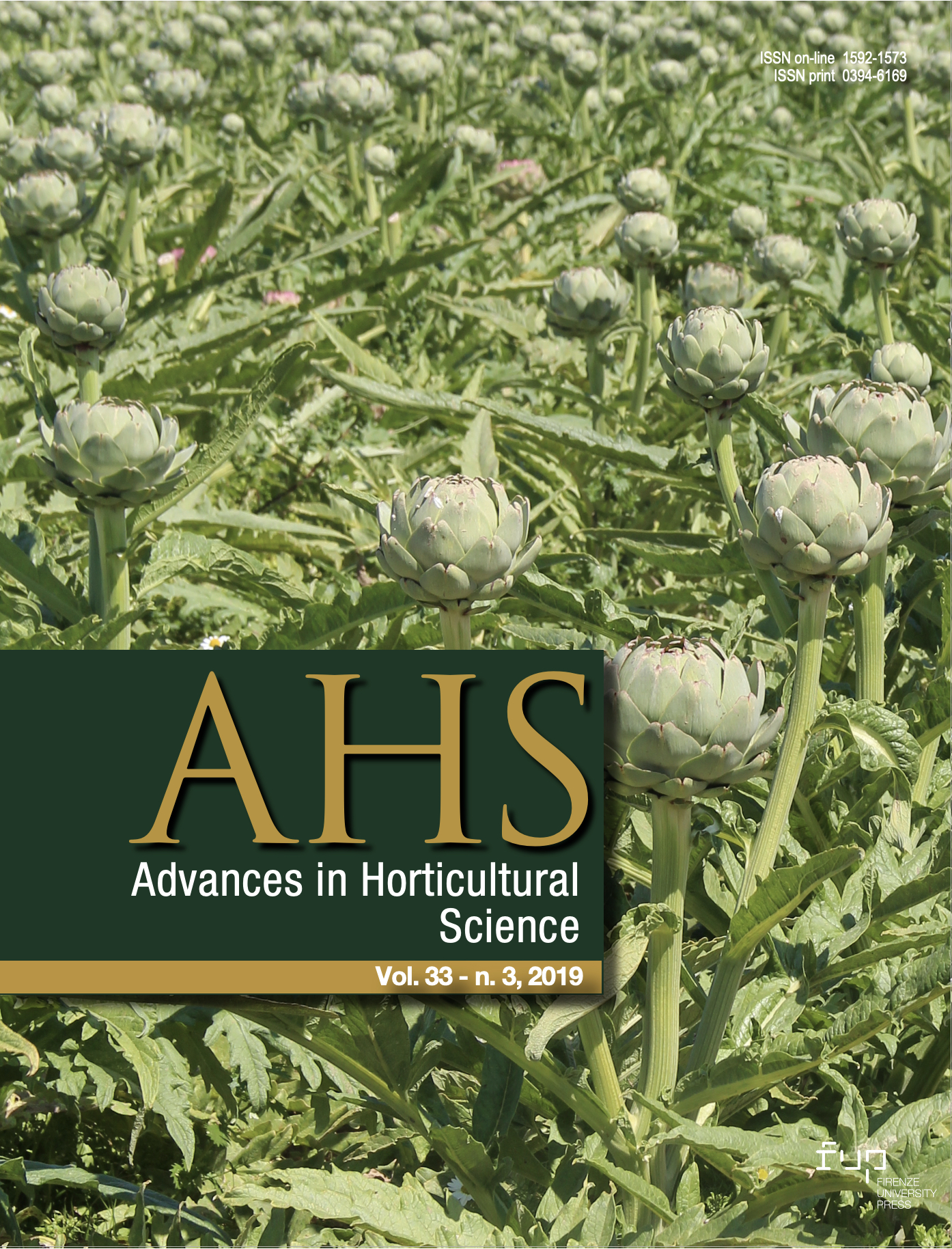Effect of vermicompost on morphological and physiological performances of pot marigold (Calendula officinalis L.) under salinity conditions
Published 2019-10-29
How to Cite
Abstract
A greenhouse study was conducted in order to evaluate the interactions of vermicompost and salinity effects on morphology and physiology of pot marigold. The experiment was conducted with vermicompost treatments at five levels (0%, 5%, 10%, 15% and 20%) and salinity treatments at five levels (0, 50, 100, 150 and 200 mM NaCl) in a completely randomized factorial design arrangement with four replications. Results showed that increasing levels of salinity led to decline in leaf area, fresh and dry weights of flower, shoot, and root, N, P, K, Fe, Mg and Zn concentrations, chlorophyll and carotenoid contents, while proline content increased in the plants. APX, SOD, POD and CTA enzyme activities significantly increased with increasing salinity from 0 to 150 mM NaCl, then declined in 200 mM treatment in the plants. Application of vermicompost increased the morpho-physiological indices and mineral nutrient uptake in the plants and could increase the plant yield by alleviating the harmful effects of salinity.






